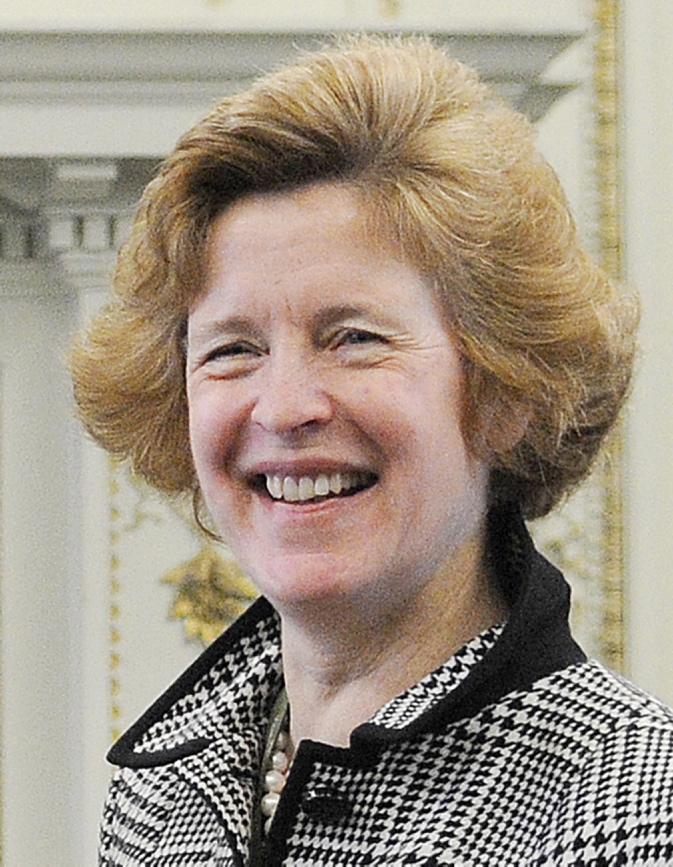AUGUSTA — The Public Utilities Commission has approved a settlement between the city of Augusta and Central Maine Power Co. in a case in which city officials alleged the utility company improperly used ratepayer resources for the benefit of affiliate utility Maine Natural Gas.
In the settlement, approved unanimously by the current two-person utilities commission Tuesday, CMP agreed to make a one-time $95,000 payment to be used to reduce electricity delivery rates throughout its service territory and not to allow CMP officials to accompany Maine Natural Gas representatives during sales calls. The small ratepayer reduction would be paid using shareholder funds.
Under the settlement, CMP doesn’t admit any violation of Maine law or utilities commission rules or regulations.
“We agreed to settle in the form of a credit to customers to avoid the added expense and distraction of continued litigation,” Gail Rice, a CMP spokeswoman, said Wednesday. “We value our relationship with the city of Augusta, and all parties agreed that making that payment in the form of a credit to our customers would be in our mutual best interest.”
The city had alleged in a 10-person complaint filed with the utilities commission last year that CMP President Sara Burns and other company officials participated in Maine Natural Gas officials’ visits to businesses. They did that to help win customers for the gas utility by leveraging CMP’s “goodwill” in central Maine, the city alleged, saying CMP essentially was using ratepayer resources for the benefit of Maine Natural Gas. As a publicly regulated utility, CMP expenses passed on to ratepayers must be properly accounted for.
CMP and Maine Natural Gas both are owned by parent company Iberdrola USA.
“We are pleased that this agreement recognizes that CMP violated PUC rules and a 1999 order by helping Maine Natural Gas generate business and that it creates a path for us to correct this issue and move forward,” the city’s attorney, Stephen Langsdorf, said in a news release. “We did not take this action lightly and look forward to resuming the city’s longstanding positive relationship with its largest employer and taxpayer.”
The Maine Office of the Public Advocate, which also was involved in the case, has endorsed the settlement.
Eric Bryant, senior counsel for the advocate’s office, said the settlement adequately resolves the issues raised in the case. He said the $95,000 to be paid by CMP to reduce distribution rates should have a minimal effect on customers’ individual bills, though CMP customers should see a reduction in their bills starting July 1 because of other rate cases being resolved.
Rice said CMP has about 610,000 customer accounts. Spread equally among those accounts, the $95,000 payment would result in a one-time reduction in each individual customer’s bill of about 15.5 cents.
Utilities commission Chairman Mark Vannoy, in approving the settlement, said that the “provisions resolve all the issues, they avoid further litigation in this case and the outcome is reasonable and in the public interest.”
The city and a group of CMP ratepayers filed a complaint with the utilities commission last year alleging the company used CMP ratepayer resources and the goodwill and reputation of the established electric utility to help relative newcomer Maine Natural Gas establish its business in central Maine. The commission voted in July to investigate.
The city spent about $20,000 in attorney’s fees on the case, according to Langsdorf.
“This agreement ensures that Maine’s ratepayers will not be subsidizing the private profits of supposedly independent companies,” Langsdorf said. “The city felt it had to take action to protect its citizens. It is very satisfied with the result and is ready to put this matter behind it.”
Burns, in testimony before the PUC in April, said her participation in meetings with potential new Maine Natural Gas customers was as a representative of parent company Iberdrola USA as part of its senior management team, and she met with businesses to assure them Maine Natural Gas had the full financial backing of Iberdrola USA. In case filings, CMP officials said their time working for the benefit of Maine Natural Gas had been properly accounted for and billed to the gas firm.
In the settlement, CMP promises it will not have any CMP officers join any Maine Natural Gas employees in soliciting customers or communicate with any existing or potential Maine Natural Gas customer directly regarding Maine Natural Gas.
Rice said no CMP personnel have accompanied Maine Natural Gas personnel on any sales visits since the commission proceeding was initiated last year.
“I welcome the opportunity to put this matter behind us,” City Manager William Bridgeo said. “Since it was first announced several years ago that natural gas was coming to Augusta, it has been our goal to facilitate its availability to as many residents and businesses as possible in a manner that best benefited our residents. I like to think that we’ve accomplished that. There are many terrific CMP employees who live in Augusta who provide valuable service to us. It’s good to be able to move on.”
The settlement appears to resolve an ongoing battle between CMP and the city that dates to 2013. That’s when Maine Natural Gas withdrew its bid for a contract to provide gas to city and school buildings and claimed the bid process used by the city was flawed and unfair. Rival gas provider Summit Natural Gas of Maine got the city contract after both providers were offered a chance to change the initial bids they had submitted.
Maine Natural Gas then took out a full-page ad in the Kennebec Journal blasting city officials for what company officials said was a flawed bid process, calling the actions of city administration “shameful.”
The city’s initial complaint also alleged CMP, as retribution for the allegedly flawed natural gas bid process, backed legislation rejected by the Legislature last year to change where utilities pay excise taxes on their vehicles from where their headquarters are located to where those vehicles are kept overnight. Augusta officials said the law change could cost Augusta about $250,000 a year in lost revenue from excise taxes paid by CMP to Augusta, where its headquarters are located.
Commissioners, however, ruled that CMP’s ability to petition the government by lobbying for passage of the excise bill was a fundamental right protected by the First Amendment, so that claim was not included in their investigation.
This year the Legislature approved a similar bill making the same change to utilities’ excise tax paying method. It takes effect in January 2017.
Keith Edwards — 621-5647
kedwards@centralmaine.com
Twitter: @kedwardskj
Send questions/comments to the editors.






Comments are no longer available on this story